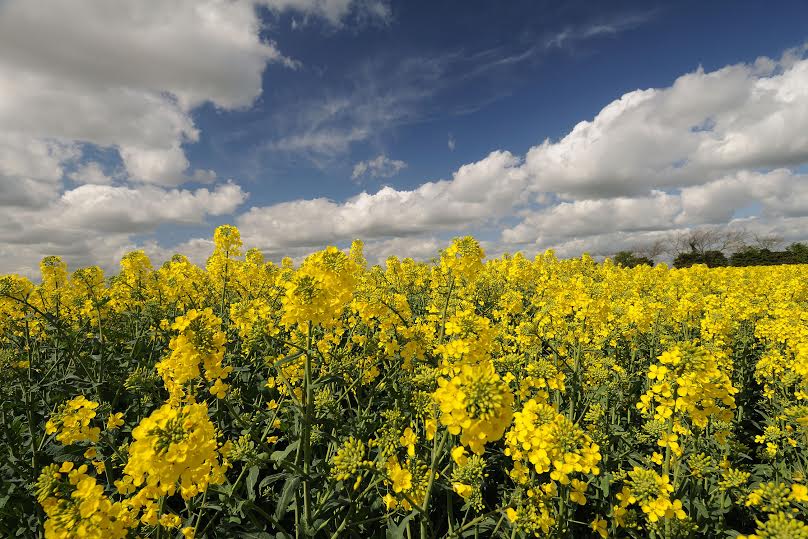
Verticillium Wilt could hit oilseed rape crops especially hard this season, with crops already under stress from unprecedented Cabbage Stem Flea Beetle larvae attack and the effects of the prolonged waterlogging last autumn that reduced the root capacity of many plants.
Growers are being advised to now take extra steps with their crops’ agronomy over the spring and early summer.
Minimising any further stress and maintaining plant health remain the best way to mitigate the effects of infection, with Amistar application offering the potential to protect and prolong the healthy green leaf area.
NIAB plant pathologist, Dr Tom Wood, reported the Verticillium Wilt pathogen is believed to infect plants in the autumn, from root uptake of seed or soil infection.
However, it then lies dormant deep in the vascular tissue of the plant through the growing season.
Late in the season, the infection is triggered to develop exponentially and cause a crash in plant material, leading to the characteristic white stems covered in black spots and early die-back that hits pod fill and seed weight, he warned.
Suffolk-based agronomist, Tim Martin, highlighted that he had witnessed more severe effects of Verticillium Wilt in seasons following a mild autumn, which may be attributed to increased early pathogen activity getting into the plant.
"We have seen some severe effects on fields with closer rotations of oilseed rape, and especially on the more susceptible varieties," he said.
Where affected crops go into premature senescence, the resulting mix of green material and dead plants makes it incredibly difficult to harvest without major seed losses.
Tim pointed out that, like Sclerotinia, it is virtually impossible to predict if Verticillium is going to be a serious problem in any one season or crop.
His recommendation is to include Amistar in the mid-flowering spray programme, where it gives the required Sclerotinia disease protection if the risk occurs, but also always offers the benefit of green leaf retention that will give an economic response in yield and oil content.
"Amistar has always proven reliable in keeping oilseed rape green and healthy, which could help to overcome the effects of Verticillium.
"It can help create a more consistent crop, with the aim of a better harvest yield," he advised. It’s a strategy he intends to repeat this season at mid-flowering.
NIAB’s Tom Wood added: "Verticillium Wilt is almost certainly seed-borne, and there is definitely a risk from contaminated land perpetuating infection.
"Environmental factors do appear to have a significant effect on the incidence of infection, and the severity of its impact on yield,” he advised. “There are clearly some differences in varietal susceptibility."
Tom advocated growers avoid using farm saved seed from any sources where they suspect that Verticillium Wilt may have been an issue, and to manage the crop to keep it as stress free as possible; from establishment, through to nutrition and disease control to retain the healthy green leaf area.
